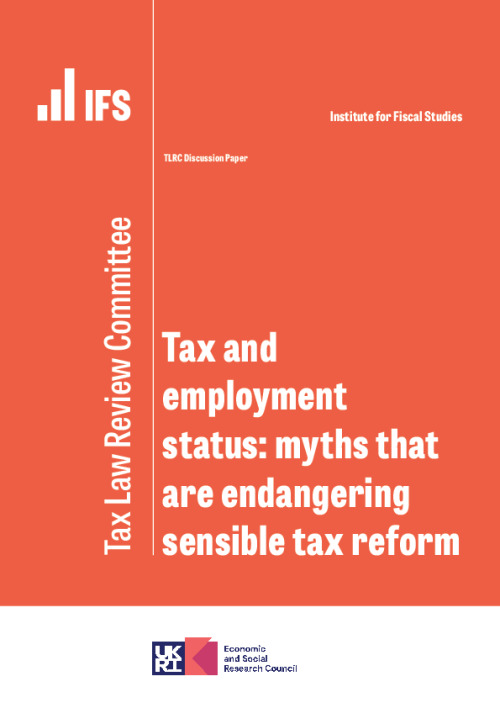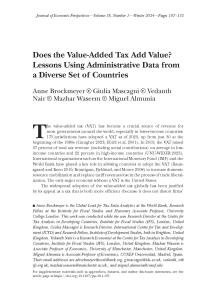The Tax Law Review Committee (TLRC) and the Institute for Fiscal Studies have made many contributions to the debate on tax and employment status. The TLRC first reported on the topic in 2001. This was developed in work done for the Mirrlees Review. More recently, the IFS 2017 Green Budget report returned to the subject and work is continuing in this area.[1] We do not rehearse all the arguments in these papers in this note but aim to address some specific myths which we believe need to be dispelled.
The recent report of the House of Lords Finance Bill Sub Committee on Off-Payroll working (HL FB report) has once again raised the need for the Government to tackle the problem of employment status in both the employment law and tax contexts.[2]
The HL FB report suggests that the off-payroll rules build on a flawed system - IR35. In fact, it is the underlying system that is flawed. IR35 was merely designed to plaster over cracks in the wall. If the cracks continue to appear, as they have done, that should tell us that the problem lies elsewhere, in the foundations.
- The TLRC strongly supports the recommendation of the HL FB Report that a fundamental review is needed.
- We share the view of the Taylor Review that the UK’s tax system should develop ‘a more consistent level of taxation on different forms of labour’ [3]
- We do not agree with Taylor or the Government’s response to Taylor[4] that a single statutory definition of employment status for all purposes will improve the current situation. If anything, it will increase distortions and the problems of the definitional cliff edge.
This paper addresses some misperceptions – myths – that have built up and taken hold of the debate around the current tax structure and its relationship with employment law. Once these are understood to be myths, the way forward should be clearer.
Here we summarise our points, which we then support with analysis in the next section.
- Employment law and tax law have different policy objectives. The design for each of these areas of law should not be constrained by reference to the needs of the other area.
- Differences in State benefits entitlement between the employed and self-employed do not account for the differences in tax rates.
- The fact that the self-employed have fewer employment rights than employees does not mean they should pay lower rates of tax. The relationship between those providing labour or services and those using those services should be regulated by contract and statute. On the whole it is best not to distort commercial arrangements by tax considerations. Even if it is desired to encourage or support certain working arrangements, a blanket tax relief for all ‘self-employed’ (which is bound to be a heterogeneous group, however defined) is not a well targeted or effective way to achieve this.
- There is no therefore no principle that requires treatment of different groups for tax purposes to be linked to their treatment for employment law purposes.
- It may sound simpler to have one definition for all purposes but the attempt to create a definition suitable for two or more very different policy objectives is likely to complicate both areas and result in a definition that is appropriate for neither area.
Therefore, we argue that the only way to fix the problems created by a poorly designed tax system is to fix the tax system. Tax considerations should not distort employment law or inhibit any reforms to employment law. Similarly, employment law or changes to employment law should not distort taxation decisions or inhibit tax reforms.
[1] Full references to these papers are listed in the report.
[2] House of Lords Economic Affairs Committee Finance Bill Sub-Committee Off-payroll working: treating people fairly 1st Report of Session 2019-20, HL Paper 50 (HL:2020)
[3] M. Taylor, Good Work: The Taylor Review of modern working practices (July 2017) BEIS.
[4]Good Work Plan (2018) BEIS.











